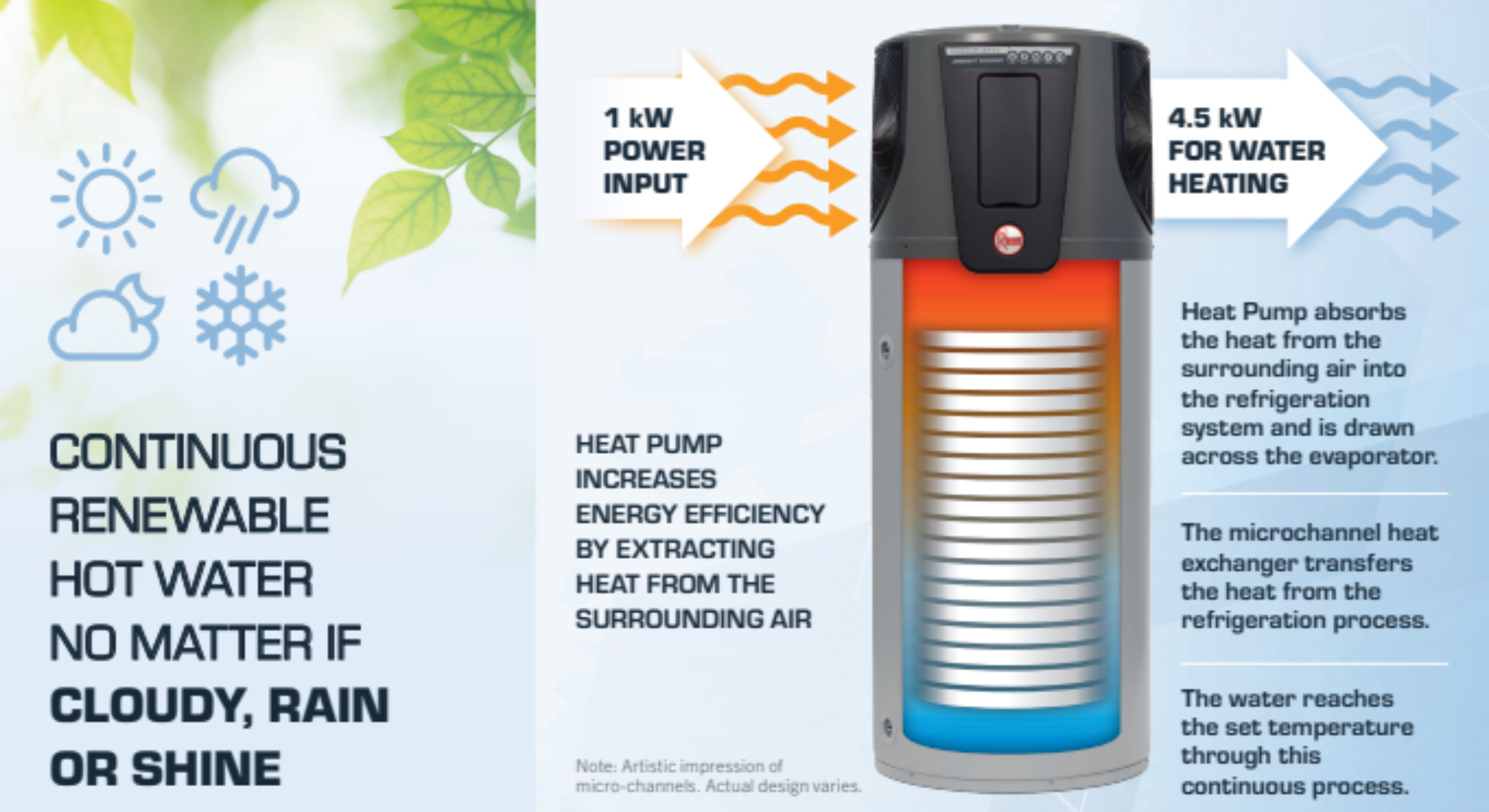‘Rebates of between $300 and $1,000 will be available for eligible Queensland householders who replace old appliances with 4 star-rated (or higher) appliances and hot water systems from 4 September 2023 until the program closes.’ – Queensland Government, Department of Energy and Public Works.
If you are considering switching an electric hot water system to a heat pump hot water system, the rebate is between $800 and $1000. Only 1,500 rebates will be available for energy efficient hot water systems, so you will need to act quickly.
For further information on eligibility criteria and how to apply, please visit the Queensland Government website:
https://www.qld.gov.au/housing/home-modifications-energy-savings/climate-smart-energy-savers/applyhttps://www.epw.qld.gov.au/about/initiatives/climate-smart-energy-savers
Making the Leap: Why Switch to a Heat Pump Hot Water System from Electric
In an era marked by growing environmental concerns and rising energy costs, making sustainable choices has become paramount. One such choice gaining popularity is the switch from traditional electric hot water systems to energy-efficient heat pump hot water systems. As homeowners and businesses look for ways to reduce their carbon footprint and cut down on utility bills, the heat pump hot water system emerges as a compelling solution.
1. Energy Efficiency
One of the best reasons to transition from an electric hot water system to a heat pump is the significant improvement in energy efficiency. Electric resistance heaters work by directly converting electricity into heat, which can be quite energy-intensive. On the other hand, heat pump hot water systems operate by moving heat from the surrounding air or ground into the water, using significantly less energy in the process. This efficiency can translate to substantial reductions in your energy consumption and monthly bills.
2. Environmental Benefits
Reducing our carbon footprint has become a global imperative, and adopting a heat pump hot water system aligns with this goal. Traditional electric water heaters are responsible for a significant portion of residential and commercial energy consumption, primarily fuelled by non-renewable sources. Heat pump systems, by contrast, utilize renewable sources of energy such as the heat in the air or ground, leading to a dramatic decrease in greenhouse gas emissions. By making the switch, you’ll be actively contributing to the fight against climate change.
3. Cost Savings
While the initial cost of installing a heat pump hot water system may be higher than that of an electric heater, the long-term cost savings are remarkable. The increased energy efficiency of heat pumps means that your energy bills will be significantly lower over time.
4. Durability and Longevity
Heat pump hot water systems are designed to be highly durable and long-lasting. Unlike traditional electric water heaters that are more prone to corrosion and wear, heat pumps have fewer components that are exposed to water, leading to a longer operational life. This means that while the initial investment might be higher, you’ll likely save money in the long run by avoiding the frequent replacements or repairs that electric systems may require.
5. Versatility and Adaptability
Heat pump hot water systems are versatile and adaptable to various environments. They can be installed both indoors and outdoors, making them suitable for a wide range of spaces. Whether you have limited space or want to optimize your existing setup, a heat pump system can be configured to meet your specific needs.
Summary
Switching from an electric hot water system to a heat pump hot water system is a forward-thinking decision that offers a host of benefits. From energy efficiency and environmental consciousness to long-term cost savings and versatility, heat pumps outshine traditional electric heaters on multiple fronts. As the world continues to prioritize sustainable living and responsible resource management, adopting innovative technologies like heat pump hot water systems becomes not just a choice, but a responsible and impactful action.
If you’re considering upgrading your hot water system, take the time to explore the options available in your region. With the right information and resources, you can make a decision that benefits both your household and the planet.


Leave A Comment